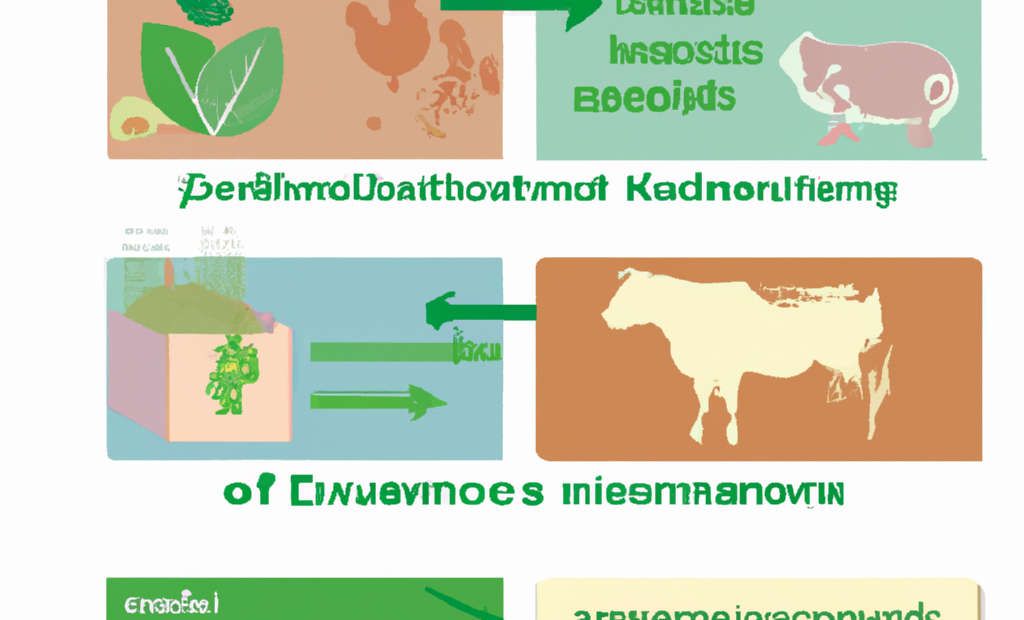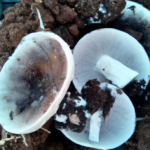The text highlights the importance of fertilizers, especially biofertilizers, in organic farming. Biofertilizers improve soil quality, promote biodiversity and help maintain a balanced ecosystem, benefiting both plants and auxiliary fauna. These sustainable practices contribute to greater productivity and sustainability in agricultural systems.
The world is experiencing a growing need to adopt sustainable and environmentally friendly agricultural practices. In this context, a deeper understanding of how the use of fertilizers, organic farming, biofertilizers and other agricultural products can favor the successful implementation of auxiliary fauna in agricultural systems is essential. This article presents a detailed case study on successes achieved in the implementation of auxiliary fauna, with an exhaustive analysis of the practices and elements that have facilitated these achievements. From the role of fertilizers to the impact of organic farming, including the use of biofertilizers and specific products for agriculture, it is hoped to shed light on the most effective strategies to promote healthy and beneficial auxiliary fauna.
- 1. "The role of fertilizers in promoting auxiliary fauna: A case study"
- 2. "Organic agriculture and its impact on the successful implementation of auxiliary fauna"
- 3. "Use of biofertilizers and their contribution to the success of auxiliary fauna in agriculture"
- 4. "Agricultural products that favor the incorporation of auxiliary fauna: Successful experiences."
1. "The role of fertilizers in promoting auxiliary fauna: A case study"
In the field of organic farming, the role of fertilizers, specifically biofertilizers, is crucial in promoting auxiliary fauna. A recent case study demonstrated that the use of biofertilizers, as agricultural products, can significantly improve the health and diversity of auxiliary fauna in agricultural fields. These fertilizers, being of organic origin, not only nourish the plants, but also benefit soil organisms and other animals that contribute to the balance of the agricultural ecosystem. Through its strategic application, farmers can encourage the presence of useful animals, such as pollinating insects and natural predators of pests, thus improving the productivity and sustainability of their crops.
2. "Organic agriculture and its impact on the successful implementation of auxiliary fauna"
Organic farming plays a fundamental role in the successful implementation of auxiliary fauna. This model of agriculture promotes the use of sustainable practices that not only improve soil quality and crop yields, but also create favorable habitat for auxiliary fauna, such as beneficial insects and other organisms that help control pests. . Instead of relying on chemical fertilizers, organic farming uses biofertilizers and other agricultural products that are safe for the environment and wildlife. These organic fertilizers, enriched with microorganisms and essential nutrients, improve soil health and promote biodiversity. By doing so, they create a balanced and resilient ecosystem that facilitates the incorporation and survival of auxiliary fauna, thus contributing to a more sustainable and resilient food production system.
3. "Use of biofertilizers and their contribution to the success of auxiliary fauna in agriculture"
The use of biofertilizers has proven to be a key element in the success of auxiliary fauna in organic farming. Biofertilizers, which contain living organisms that contribute to plant nutrition, are a healthier and more sustainable alternative to traditional chemical fertilizers. These agricultural products not only improve soil quality, but also create a conducive environment for auxiliary fauna, such as beneficial insects and earthworms, which help in the decomposition of organic material and soil aeration. Thus, the use of biofertilizers not only contributes to the health of plants, but also promotes a balanced and diverse ecosystem that favors sustainable agriculture.
4. "Agricultural products that favor the incorporation of auxiliary fauna: Successful experiences."
The use of agricultural products that favor the incorporation of auxiliary fauna has proven to be a successful strategy in improving the productivity and sustainability of agricultural systems. Among these products, fertilizers and biofertilizers stand out, which not only enrich the soil, but also promote the proliferation of beneficial organisms. For example, organic farming, which prioritizes the use of these products, has reported an increase in the diversity of auxiliary fauna, such as pollinating insects and natural predators of pests. These results are a testament to the crucial role that agricultural products play in the integration of auxiliary fauna in agricultural systems, and highlight the need to continue exploring and promoting environmentally friendly agricultural practices.
This case study has successfully demonstrated that the implementation of auxiliary fauna in agriculture can be enriched and supported through various methods. The crucial role that fertilizers play in promoting these species has been highlighted, as well as the tangible benefits that organic farming can have in its implementation. It has also been shown that the use of biofertilizers can contribute significantly to the success of auxiliary fauna in agriculture. Finally, products for agriculture have been presented that favor the incorporation of auxiliary fauna, highlighting successful experiences. In summary, this case study highlights the importance of an integrated and ecological agricultural strategy that ranges from the use of fertilizers to specific agricultural products, in order to promote healthy and beneficial auxiliary fauna. This is an essential component for a more sustainable and environmentally friendly approach to agriculture, resulting in benefits for both ecosystems and farmers.


